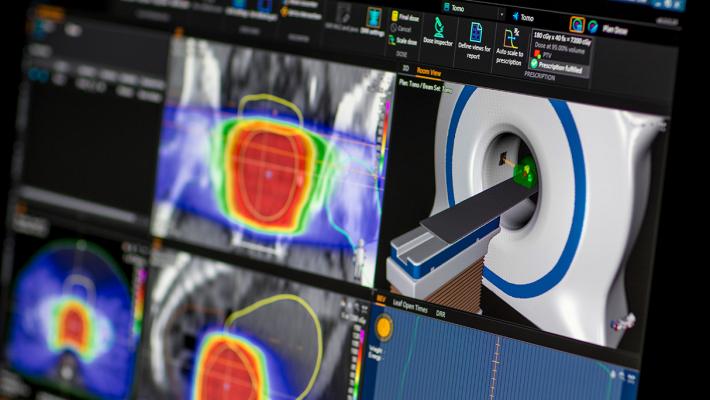
February 26, 2018 — The University of Texas MD Anderson Cancer Center and RaySearch Laboratories announced a new strategic alliance with the aim of enhancing cancer radiation therapy through several initiatives. The partnership will focus on goals including more precisely targeting tumors and improving upon, and making more available, adaptive radiation therapy (ART), currently only used at highly specialized care centers.
Successful radiation therapy depends on the ability to delineate the precise tumor location. Since most radiation treatments are delivered over several weeks, a number of variables can compromise treatment accuracy. Traditionally, additional margins are set around the target area to allow for tumor movement and variations in how patients are positioned during treatment.
However, these margins do not always compensate for unexpected changes in the tumor and surrounding normal tissue over the full course of radiation treatment. ART uses frequent imaging to give an up-to-date assessment of physical changes and enable precisely tailored treatment for each patient.
The partnership — which builds upon a previously established relationship between RaySearch and MD Anderson centered on RayCare, RaySearch’s new oncology information system (OIS) — combines MD Anderson’s clinical data and expertise with the latest technology and platforms available through RaySearch and will focus on the following areas:
- Integration of advanced imaging into the treatment planning process to help define the tumor targets better;
- Management of changes in the tumor that may occur during treatment, and monitoring and adjusting treatment to accommodate each patient’s individual circumstances at any point during therapy; and
- Building software components with the aim of creating a new standard of care in radiation therapy.
“The technology to perform adaptive radiation therapy has been around for a number of years and studies have demonstrated its advantages,” said Caroline Chung, M.D., assistant professor of radiation oncology at MD Anderson. “However, it is a complex process that has not yet been broadly adopted in clinical practice and is largely limited to highly specialized care centers. The goal of this collaboration is to establish a methodology and workflow, clinically tested at MD Anderson, which can be streamlined and automated to enable adaptive radiation therapy on a larger scale.”
The combination of advanced imaging data, including platforms such as RayCare and the treatment planning system RayStation, will be vital to improving the delineation of tumors. Together, this provides a novel opportunity for more personalized treatment and the development of digital workflows has the potential to improve patient care at MD Anderson and other cancer care facilities around the world.
For more information: www.raysearchlabs.com, www.mdanderson.org
Related Radiation Therapy Content
RaySearch Launches RayCare Oncology Information System
RaySearch Releases RayStation 7 Radiotherapy Treatment Planning System
Generating Precise Treatment Plans
Treatment Planning Systems Comparison Chart (requires registration but is free)


 January 30, 2026
January 30, 2026 









